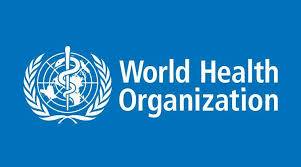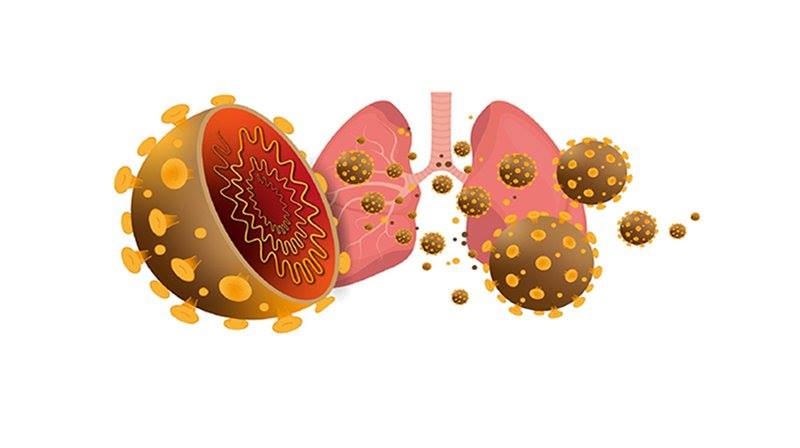COVID-19
FIRDAY - JULY 17 - 2020

DNBC NEWS
COVID-19
FIRDAY - JULY 17 - 2020

The corona virus appears in Wuhan, China, at the end of 2019, where there is a group of infected cases at an animal market.The corona virus, officially known as Sars-CoV-2, is closely related to the virus that infects bats, but it is thought that it was transmitted from bats to a mysterious animal then transmitted to humans
Professor Wei Zongyou of Fudan University (China) argues that Beijing hates that countries "assume they are guilty", that is, an investigation is carried out, but in the beginning they have thought that a virus originated from China. Therefore, the more international pressure is, the more China will refuse. Professor Sulmaan Khan of Tufts University (USA) is different. Mr Sulmaan said that the main reason why China refused to conduct an international investigation was because of fear of losing face. "It's like a bunch of people come in front of you and say you're not competent to do it so they will do it for you," the US expert argued.

For most patients, COVID-19 begins and ends in the lungs, the reason being that the corona virus family mainly causes respiratory disease. The spread begins when an infected person coughs or sneezes, sending droplets of virus-containing liquid to the next person. The initial symptoms of coronavirus infection are similar to those of regular flu: patients may develop a fever, cough, then continue to develop pneumonia or get worse. After the SARS epidemic, WHO observed that the disease usually attacks the lungs in three stages: The first is the invasion of cells, forming the virus drive; This is followed by disrupting the immune system (for example, cytokine storm syndrome); and eventually lung damage. Not all patients go through all three stages, only about 25% of SARS patients suffer from respiratory failure - a major manifestation of serious illness. Similarly, preliminary data show that COVID-19 causes mild symptoms in 82% of patients, the remainder is severe or critical. Professor Matthew B. Faeman, a virus expert at the University of Maryland (USA), observed that COVID-19 has progressed like SARS. In the early days of infection, the virus overwhelmed the lung cells, mainly the cilia cell, which protects mucous cells. Losing that protective layer, the airways will be filled with dirt, fluids and viruses. This attack causes many COVID-19 patients to have inflammation of both lungs, accompanied by shortness of breath, Professor Frieman said. This is when phase 2 begins. Before the invasion of the virus, the body responds by boosting immune cells to the lungs to repair damage. If functioning properly, this inflammatory process is controlled and limited to the virus-infected part.

Coronavirus disease (COVID-19) is an infectious disease caused by a newly discovered coronavirus. Most people infected with the COVID-19 virus will experience mild to moderate respiratory illness and recover without requiring special treatment. Older people, and those with underlying medical problems like cardiovascular disease, diabetes, chronic respiratory disease, and cancer are more likely to develop serious illness. The best way to prevent and slow down transmission is be well informed about the COVID-19 virus, the disease it causes and how it spreads. Protect yourself and others from infection by washing your hands or using an alcohol based rub frequently and not touching your face. The COVID-19 virus spreads primarily through droplets of saliva or discharge from the nose when an infected person coughs or sneezes, so it’s important that you also practice respiratory etiquette (for example, by coughing into a flexed elbow). At this time, there are no specific vaccines or treatments for COVID-19. However, there are many ongoing clinical trials evaluating potential treatments. WHO will continue to provide updated information as soon as clinical findings become available.
19 People can protect themselves through the following measures: * If you live in an epidemic area in China or return from an epidemic area, note the latest information on the disease situation and stay healthy in the following ways: Maintain a 1-2 meter communication distance between you and others, especially those who are coughing, sneezing and having a fever. Avoid touching your eyes, nose and mouth. Wash your hands often with an alcohol-based hand sanitizer or with soap and water. If you have a fever, cough and shortness of breath, go to the clinic early and tell the medical staff where you went. * If you do not live or do not go to an epidemic area in China and do not interact with the affected people, note the latest information and just need and stay healthy in the following ways: Ensuring a balanced diet, getting enough sleep and taking regular precautions for the flu. Avoid touching your eyes, nose and mouth Wash your hands often with soap and water or an alcohol-based hand cleaner

| July 17th | Indonesia | France | China | Vietnam | Thailand | Campuchia | Phillipine | India | Laos | World |
|---|---|---|---|---|---|---|---|---|---|---|
| Number of infections | 83.130 | 173.304 | 83.622 | 372 | 3.239 | 171 | 63.001 | 1.003.832 | 19 | 13.810.534 |
| Recovered people | 41.834 | no information | 78.737 | no information | 3.096 | 133 | 21.440 | 635.757 | 19 | 7.718.606 |
| Deaths | 3.957 | 30.120 | 4.634 | 0 | 58 | 0 | 1.660 | 25.602 | 0 | 590.005 |